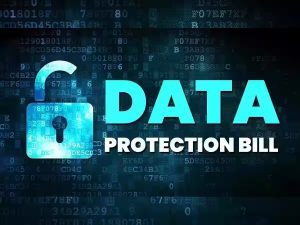- Find Us Now!
- info@indianlawcompany.com
- Mon-Sat 10:00AM - 6:00PM
-
Location
25/42, A Block, Middle Circle
Connaught Place,
New Delhi - 110001 - Email Us info@indianlawcompany.com
- Call Us Today +91-011-44127897
Non-Profit Organisations
Get in touch
Indian Law Company is your trusted partner in providing comprehensive legal support for Non-Profit Organizations (NPOs). Our dedicated team of legal professionals understands the unique challenges and objectives of non-profit entities and is committed to helping them navigate the legal landscape efficiently and Additional Support for NPOs
Grant Compliance and Funding: Guiding non-profits in understanding and complying with grant requirements, ensuring proper utilization of funds, and maintaining transparency.
Charitable Solicitations: Assisting in compliance with state and federal laws related to charitable solicitations, fundraising campaigns, and donor disclosures.
Board Governance Training: Offering training sessions for board members on their legal responsibilities, fiduciary duties, and best practices in governance.
Conflict Resolution: Providing legal support in resolving internal conflicts, disputes, and ensuring adherence to conflict-of-interest policies.
Advocacy and Lobbying: Guidance on permissible advocacy and lobbying activities, ensuring compliance with legal restrictions and maintaining the non-profit’s tax-exempt status.
Legal Audits and Due Diligence: Conducting legal audits to assess compliance and due diligence reviews for potential partnerships, mergers, or collaborations.
Our Services
Specialized Knowledge: Our team possesses specialized knowledge in non-profit law, ensuring tailored legal solutions.
Proactive Compliance: We help NPOs stay ahead of compliance requirements, minimizing legal risks and ensuring smooth operations.
Mission-Aligned Solutions: Recognizing the unique missions of non-profit organizations, we provide legal solutions aligned with their goals.
Cost-Effective Counsel: Offering cost-effective legal counsel to support the financial sustainability of non-profit entities.
Key Highlights
Formation and Registration: Assisting in the establishment and registration of non-profit organizations, ensuring compliance with applicable laws and regulations.
Governance and Compliance: Providing guidance on governance structures, compliance requirements, and best practices to uphold transparency and accountability.
Tax-Exempt Status: Assisting NPOs in obtaining and maintaining tax-exempt status, ensuring compliance with relevant tax regulations.
Drafting Bylaws and Policies: Developing clear and comprehensive bylaws and policies tailored to the specific needs and goals of the non-profit organization.
Fundraising Compliance: Ensuring adherence to legal requirements related to fundraising activities, donor relations, and compliance with fundraising regulations.
Contracts and Agreements: Drafting and reviewing contracts, agreements, and MOUs to safeguard the interests of the non-profit organization in various transactions.
Intellectual Property Protection: Providing legal counsel on protecting the intellectual property assets of non-profit organizations, including trademarks, copyrights, and patents.
FAQS
India has numerous regulatory bodies overseeing various areas, including RBI, SEBI, IRDAI, NABARD, TRAI, FSSAI, CBFC, PFRDA, BIS, IBBI, and EPFO. These bodies regulate a wide range of actions and projects.
A private limited company must promptly comply with essentials like registered office address, first board meeting, issuance of shares, certificate to commence business, PAN/TAN, and other local/state registrations within the first 30-90 days after incorporation.
Corporate law in India encompasses Mergers and Acquisitions (M&A), corporate governance, and commercial transactions. Key laws include Companies Act, 2013, Competition Act, 2002, SEBI regulations, Depositories Act, 1996, and SEBI (Listing Obligations and Disclosure Requirement) Regulation, 2018.
Leagal Updates

Digital Personal Data Protection Act, 2023 And Its Impact On The IT/ITeS Sector

The Constitutional Landscape and Future Trajectory of E-sports in India

THE MENACE OF DEEPFAKE AI: Navigating Legal Consequences and Safeguarding Privacy

The Legal Tapestry: A Woman’s Role in the Offense of Rape

Unmasking Corporate Veil Piercing: Navigating Limited Liability Boundaries

